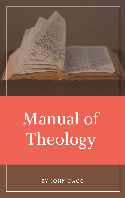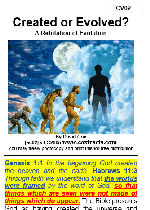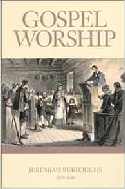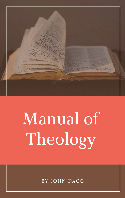Ads
Contents
Congregationalism
By David Cox
From wikipedia.org…
Congregational churches are Protestant Christian churches practicing Congregationalist church governance, in which each congregation independently and autonomously runs its own affairs.
Many Congregational churches claim their descent from a family of Protestant denominations formed on a theory of union published by the theologian Robert Browne in 1592. These arose from the Nonconformist religious movement during the Puritan reformation of the Church of England. In Great Britain, the early congregationalists were called separatists or independents to distinguish them from the similarly Calvinistic Presbyterians. Some congregationalists in Britain still call themselves Independent. continue reading wikipedia.org
Evaluation by David Cox
I think that it is improper to judge men of times past by our standards today, thinking that every Christian and preacher from the time of Christ has to be and think like we do today. Would I change my beliefs and positions to theirs? no, not necessarily. Some would say Martin Luther was a great man of God, and some Baptists even make him to be the “best Baptist” that ever walked the earth from their praise of him. He was a Catholic priest. You cannot get around that main point. However, in his day, in his situation historically and religiously, he was a great man, because being a Catholic priest, he was honest with his Bible, and he took a standard for the truth, and paid a heavy price for that stand. I can give the man that praise very much. Lutheranism reflects Luther, and their beliefs about the Lord’s Supper, for example, would show where Luther didn’t separate himself sufficiently from the Roman doctrines.
I would consider that the Congregationalists are a group “coming out of” or “in the same vein as” the Puritans. I think that they desires were purity and faithfulness to the Scriptures, and they reacted against the Anglican and Catholic church structures and heresies of their day. I would highly recommend them for these stands. Furthermore, they understood the error of “rule by select few” that the Roman Catholics and Anglicans drove into the extreme. Their charter Savoy Declaration clearly rejects an earthly government more than the local assembly. The Congregationalists placed a tremendous importance on decisions being made at a member level instead of behind closed doors by Popes and Archbishops. Again this is a heroic stand that they made against all religions of their day that did things in an unbiblical way. According to this article, The Congregationalists, (http://www.pamphlets.org.au/australia/acts1213.html) the forces and tendencies within the group today are working to overpower the individualism and replace it with an over arching organization, and basically that is the way things go with all independents, they succumb to pressures to “join”, “associate”, and “submit to” losing their independence.
I would also see a lot of the historic Baptist beliefs and practices being completely in sync with this group, such as universal priesthood of EVERY believer and no special priests.
Moreover, some of their main preachers were men of God that God greatly used in their day to do the work of God. Their basic mind-set was/is to find out what the Bible says, and believe that without getting so involved in church polity, religious political movements, etc. as the deciding factors of doctrine and practice. In heart, I would see them as basically the same thing as a good Baptist, a good separated Fundamentalist, although those exact words may not have been applied to them.
I would heartily recommend Congregationalist works in general.
Principle men in Congregationalism
George Campbell Morgan – After Spurgeon, I consider G.C. Morgan to be one of those “princes among preachers”. I say that not so much from examining and studying their sermons, (I don’t get a whole lot out of Spurgeon’s sermons either even though both he and I are Baptists), but because of the rapport that these men had with their audiences. God has men for each age, and the men that have a ministry like these men preach in such a fashion as that they “strike a note” with their congregations, and because a “success” (probably more in men’s eyes than God really), and they become very popular among Christians in their day. In general, some of their sermons would seem to be “light” on Bible exposition, and light on applications, but I say that judging them from our perspective of today. In their day, their sermons were what God sent for those people. The people of yesteryear were more simple, and life was not as complicated as today, and a preacher’s resource were not what we have today with all the volumes and volumes of books available, and even computer programs and libraries that are available (www.twmodules.com). Having said that, let me recommend Morgan, because his works are very good, even though they may not be exactly what a sermon of today would be, his sermons are very good instruments of God for probing the heart.
Dwight Lyman Moody – This is another man that was a “prince of preachers” in his day. His works would all be highly recommended as well as Morgan’s
The Problems of Congregationalism
Having recommended Congregationalism, and having identified it with the basic tenets of Baptist and Fundamental doctrines and practices, I must digress and add that there are some logistical and theological problems with Congregationalism. See the article in the link below. I would agree with Burk that there are logistical and theological problems in submitting everything to a vote. While the NT churches did involve the members in the activities and decisions of the local church, there are problems with this. My view is that a church, a family, a business, a country are all the same. The value of the whole is made up by the value of the individuals, plus or minus some by putting them together. If a church has strong men of God, the church will probably be strong. If the men there are weak, of poor discernment and doctrine, and don’t stand for God and His principles (i.e. aren’t true men of God), the church will reflect this plus some.
See also Denny Burk – Is Congregationalism from Satan?
My Opinion
While this system could be good, I see it as a reaction against regular ministers running a local church. The New Testament has Peter, Paul, Barnabas, Titus, Timothy, etc. as being in charge of works. These are ministers obviously. What do you get by removing this “minister” element and replacing it with a straight vote of the congregation?
- The wisdom and experience of ministers is destroyed. People who have been burned don’t get the weight of their experience, preparation, godly calling, personal walk with Christ, etc. Everybody is equal.
- Mnistering, and being aware and informed of all the bad stuff out there takes a lot of time and energy and preparation to be on top of it. Most individuals in a congregation have a fight just to show up at all the services. They are not willing to pay that price. Yet 2 dozen of them that are barely participating will outweight several very godly ministers.
- I would see this as a consequence of a congregation not being able to select godly men to minister over them. Since they cannot select real men of God, they capitchulate to a democratic vote hoping that this will solution their problems. But this is extremely dangerous. When these people have assets and resources, another group can seed their own people into the congregation outnumbering those who were originally part of the group by 2 to 1 or 3 to 1 and vote the church do whatever they want. I have seen this in Baptist churches on the mission field.

Dagg Manual of Theology is a theology work in 2 volumes by J.L. Dagg a Reformed Southern Baptist. It is an extensive, very ample presentation of doctrines.
This is an extensive Bible Systematic Theology (Bible Doctrines book) from a conservative point of view.
Read/Download: now with pdf download link. 50,000 views on this page with download link







